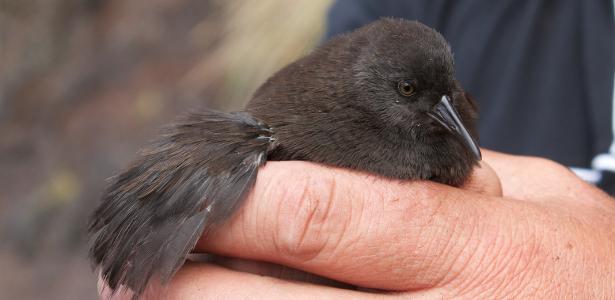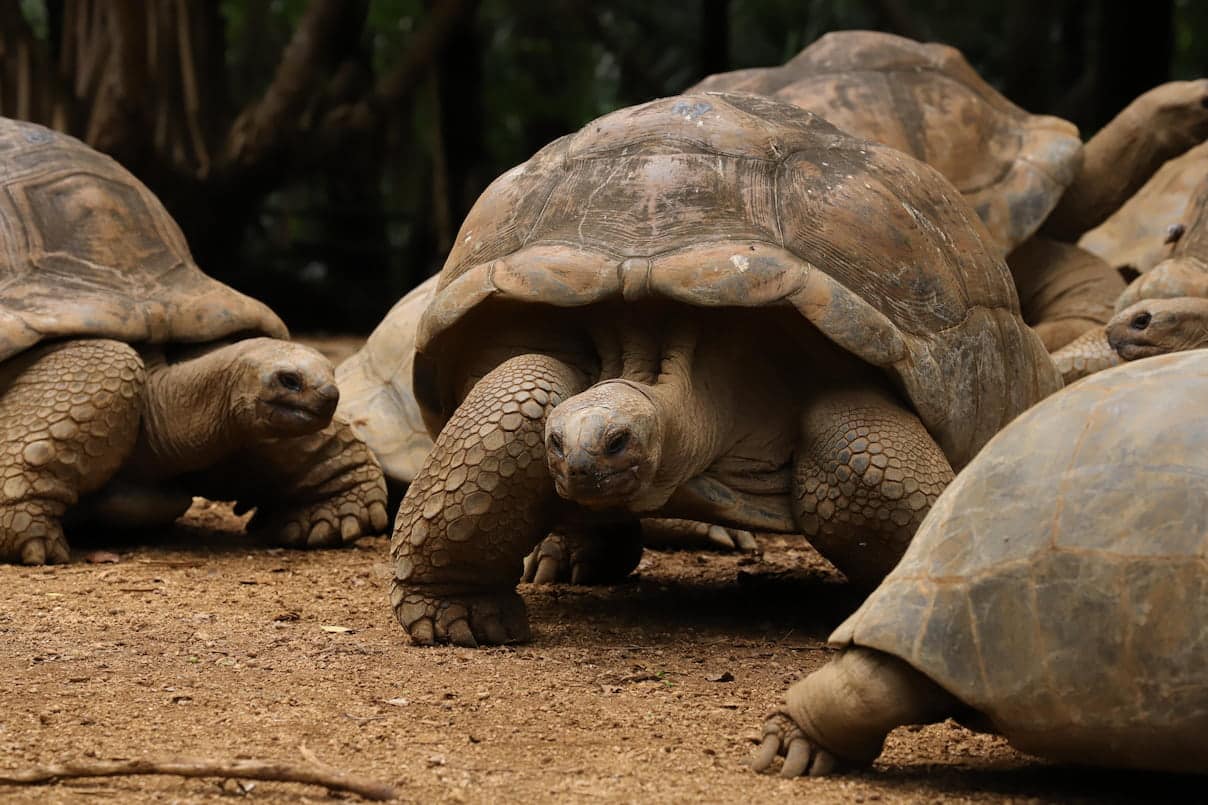The average human life expectancy today is about 80 years, and it may vary from one region of the world to another. For many of us, life expectancy is relatively very short, while for other people it is a fair life expectancy, especially when compared to the animal kingdom, where there are animals that live even less than a year.
However, there are other animals that have a life expectancy that is absurdly longer than ours. Thinking about this situation, today we decided to present the seven animals that have the longest life expectancy in the animal kingdom, and you will be surprised how long some animals can live. But enough wasting time and let’s check it out from now on!
7. Giant Galapagos Tortoise – 152 years old
The Galapagos tortoise is a strange species of tortoise that lives on the Galapagos Islands, located in the vast Pacific Ocean. This magnificent creature has an exceptional longevity, reaching a lifespan of 152 years, making it among the longest-living reptiles on the planet. The Galapagos tortoise has a slow metabolism and a low rate of cell division, characteristics that play an essential role in protecting against the effects of aging.
Another fascinating aspect is its ability to regulate body temperature, which acts as an effective defense against the adversity of the environment in which it lives. Additionally, these majestic tortoises are among the largest in the world, with males weighing up to 500 pounds (227 kg) on average, while females average about 250 pounds (113 kg).
Galapagos tortoises have a long metabolism, giving them a remarkable resistance to starvation and disease. They have an amazing ability to survive up to a year without food or water. Furthermore, these turtles adopt a peaceful lifestyle, chewing grass and other plants and enjoying the sun for up to 16 hours a day.
6. Bowhead whale – 200 years
The majestic Greenland whales have an amazing longevity, exceeding the impressive 200-year mark! A notable example is the record of a female captured along the Alaskan coast, who is estimated to have lived between 115 and 130 years.
However, some of these magnificent creatures have defied expectations even further, reaching astonishing ages, such as 135 years, and even an astonishing 172 years. In one exceptional case, scientists identified a specimen that reached an incredible age of around 211 years, far exceeding initial estimates.
The secret behind this remarkable longevity lies in specific genetic mutations found in bowhead whales. A crucial gene called ERCC1, which plays a vital role in repairing damaged DNA, appears to confer a unique resistance to these majestic creatures, protecting them from potential diseases such as cancer.
Furthermore, another prominent gene, known as PCNA, contains a repeat section, which is associated with cell growth and repair. This genetic duplication appears to help delay the natural aging process of whales, making them a true wonder of nature.
Read also | The 7 shortest-lived animals in the world
5. Rough wrasse – 205 years
Another animal notable for its longevity is the rough-eyed rockfish (Sebastes aleutianus), also known as “rough-eyed rockfish” in English. This amazing species has the ability to live an incredible 205 years, making it one of the longest-living fish known.
Rough-eyed wrasse live in Pacific waters and can reach a length of 97 cm. In their diet, they include a variety of prey, such as shrimp and even small fish.
4. River mussel – 280 years old
The river mussel, scientifically known as Margaritifera, is a type of bivalve that feeds by filtering food particles from fresh water. These wonderful creatures are found in rivers in Europe and North America. Surprisingly, the oldest recorded river mussel lived an incredible 280 years.
These invertebrates are able to achieve such longevity due to their extremely slow metabolism. However, it is unfortunate to note that river mussel numbers are declining due to damage and changes in river habitats, which are caused by human activities.
3. Greenland shark – 512 years old
Greenland sharks, also known as Somniosus microcephalus, are true inhabitants of the depths of the Arctic and Atlantic Oceans. These majestic creatures can reach lengths of up to 7.3 metres, and have a diet that includes a wide range of other marine life, including fish and marine mammals such as graceful seals, as documented by the respected St. Lawrence Shark Observatory in Canada.
However, what really fascinates scientists and marine life lovers is the exceptional longevity of these sharks. In a fascinating 2016 study, it was estimated that these magnificent creatures could have a lifespan of at least 272 years. The longest-living sample in this study surprised everyone by reaching an impressive age of 392 years. These bold discoveries have led scientists to hypothesize that some Greenland sharks may exceed the astonishing figure of 512 years of life!
2. Marine sponges – more than 5 thousand years old
Corals, sponges and other organisms that live in the depths of the oceans have natural protection against temperature fluctuations and violent storms that pose deadly threats to animals that live in shallow waters. This condition, which often results in fatalities for these shallow marine inhabitants, has given these creatures a notable evolutionary advantage, allowing them to enjoy exceptionally long lives because they are less susceptible to accidental injury.
For example, estimates of the longevity of sponges can vary widely, but often extend into thousands of years.
1. Immortal Jellyfish – Immortal
Have you ever imagined the possibility of being immortal? Do you grow older, and instead of ending your journey, you go back in time and start your existence over as an infant? To us, this seems like a daydream, just a dream. However, for an immortal jellyfish, this is an amazing fact. These unusual creatures begin their life cycle as larvae, called levels, floating adrift in vast seas. They then settle to the ocean floor, transform into fixed polyps, and then turn into free-swimming jellyfish. So far everything seems normal.
However, what is truly impressive is the unique ability of immortal jellyfish to return to the tumor stage and restart their course if they sustain injuries or are exposed to stressful situations due to changes in their environment. Surprisingly, they can repeat this process several times if given the opportunity. It is important to note that if they do not have this opportunity, many of them will become prey for other inhabitants of the seas.

“Music fanatic. Professional problem solver. Reader. Award-winning tv ninja.”

/https://i.s3.glbimg.com/v1/AUTH_bc8228b6673f488aa253bbcb03c80ec5/internal_photos/bs/2023/Y/h/7pMEYST5CwB5de2ljgbw/cruzeiro-ronaldo-pedro-lourenco-pedrinho-bh-02.jpeg)



:strip_icc()/i.s3.glbimg.com/v1/AUTH_e84042ef78cb4708aeebdf1c68c6cbd6/internal_photos/bs/2023/h/V/owY8MTTniAkFrSPaEfJQ/samara-felippo.jpg)

More Stories
The most famous resident of the island is the flightless bird called Inaccessible
A watch owned by the richest Titanic passenger was sold at auction for 7.47 million Brazilian reais
Hamas leader says there are no “major problems” with the truce proposal